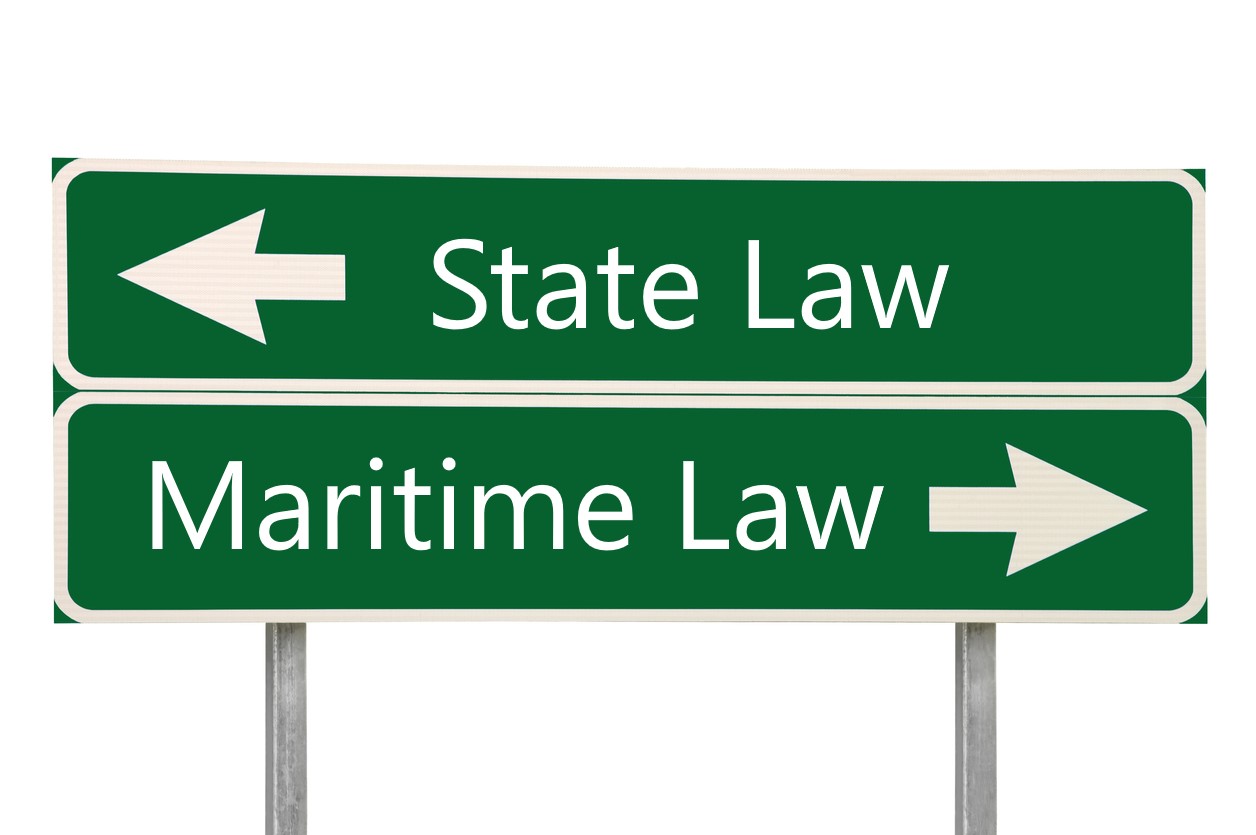Insurance on vessels and cargo is one of the oldest forms of property insurance. One of the first questions when dealing with any type of policy involving boats, marinas, cargo, and even docks is whether state insurance or admiralty law applies to a given situation. It is not a well-settled area of the law, as demonstrated by language from a recent decision.1
When deciding the issue of whether admiralty law applied, Judge Robert Hinkle observed:
Whatever one might say about the life of the law more generally, the proper approach to classifying matters as maritime or nonmaritime focuses on experience—on distinctions entrenched in precedent—more than on logic…The distinctions are rife with inconsistencies. Consider two identical contracts to add identical features to identical vessels. The first vessel has been completed and delivered to the owner, taken to sea for perhaps an hour, and then, on a change of heart, brought back in for installation of additional features. The second vessel has been completed except for the same features—the owner will not take delivery until those features are added—but the vessel has been taken to sea for an hour, perhaps much longer, for trials. The contract to install the features on the first vessel is maritime. The contract to install the features on the second vessel is nonmaritime. This is so because of the settled rule that contracts to repair existing vessels are maritime while contracts to build new vessels are nonmaritime—even if the contracts cover exactly the same work in exactly the same manner at exactly the same place. The rule is the rule, even if it can be explained only as a matter of precedent, not logic.
How is a builder’s risk policy for a ship treated? The court made the following ruling noting that logic played little in the determination:
Just as clearly, contracts to insure vessels are maritime. This has been said time and again. See, e.g., Kossick v. United Fruit Co., 365 U.S. 731, 735 (1961) (stating the ‘boundaries of admiralty jurisdiction over contracts . . . have always been difficult to draw’ but contracts to insure a ship are maritime) (citing New England Mut. Marine Ins. Co. v. Dunham, 78 U.S. 1 (1870)); see also Schoenbaum, supra, §§ 3:10 & 19:2 (stating maritime insurance contracts invoke admiralty jurisdiction and specifically actions ‘to recover under a (ship) builder’s risk policy are within admiralty jurisdiction.’).
There is little logic in the rule that a contract to build a new vessel is nonmaritime, while a builder’s risk policy insuring the vessel while under construction is maritime. But the rule is the rule, even if it can be explained only as a matter of precedent, not logic.
If we wrote a clean slate, perhaps a contract to build a vessel would be treated the same as a contract to insure the vessel. But if we wrote on a clean slate, the inconsistency might well be resolved by treating both the construction contract and the insurance contract as maritime, at least when, as here, the vessel is large and will sail the oceans. Make no mistake: the entire enterprise is directed toward building and launching a vessel for use in navigable waters. And one ought not lose sight of the principal risk covered by marine insurance, even builder’s risk insurance on a vessel under construction: loss of or damage to a vessel in the water….
What about insurance on docks? The court noted:
That insurance covering a nonmaritime dock is nonmaritime is hardly surprising—insurance covering a house or car or factory also is nonmaritime. And while Bender suggests that perhaps this would change once the dock broke free—a position that would support the underwriters here, because this vessel, too, broke free—it seems more likely that the policy was maritime or nonmaritime all along. What is important here is that Bender recognized the settled rule that marine insurance—insurance on vessels—is maritime. Indeed, Bender seemed to assume that, had the case involved a traditional vessel under construction rather than a dock, the builder’s risk policy would have been maritime. Why else would it have mattered whether a floating dock is a vessel, or whether this dock became a vessel when it broke free?
State insurance laws and admiralty law can differ significantly. Which law to be applied is an important consideration involving any insurance policy.
Under admiralty jurisdiction and law, there is no right to a jury trial. Instead, the matter is tried only to the court. In this matter, Judge Hinkle ruled that the case would be tried by him rather than a jury because the builder’s risk policy on a vessel was governed under admiralty law.
Thought For The Day
Remember there’s no such thing as a small act of kindness. Every act creates a ripple with no logical end.
—Scott Adams
1 Norwegian Hull Club v. North Star Fishing Co., No. 5:21-cv-181 (N.D. Fla. Mar. 10, 2023).




